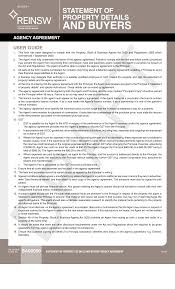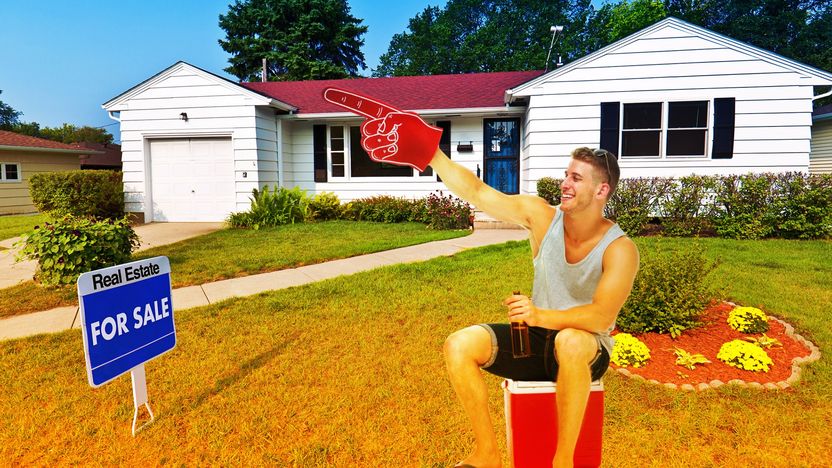
Procuring cause disputes are common in real estate. Whether you are working with your own clients, or with another agent in the office, understanding how procuring cause works can help you avoid conflict and make sure that you receive the commission you earned.
Procuring Cause
The facts and circumstances in a case will determine whether procuring cause can be determined. The panel members consider these factors and apply them in light of the guidelines established to assist them in determining procuring cause.
Did the broker establish a direct connection between his sale and that of the property?
A broker may not be entitled for a commission, unless he can prove that the property was bought and sold directly. This theory is called the procuring cause theory.

Is it legal for the broker to offer the property?
A broker must have a legal obligation under the law to bring the property to receive a compensation. In some states, the broker may still have the right to commission even if there is no contractual relationship between the seller and the agent.
Is the broker able to bring the property into the buyers' attention for a legitimate reason?
Procuring cause analysis should be fact-sensitive. It requires that the panel member consider all factors. Not just one or two. Among these factors are whether the broker made a proposal on which the sale was based, and whether the broker satisfied any prerequisites of the buyers.
Do you have an ongoing relationship?
Brokers mistakenly believe that a commission should be granted to them because they are in an ongoing relationship. This is a misconception because the agent in question must be different from the client's broker.
Did the buyer reveal to the seller that a certain brokerage had brought him to the transaction

It should also be remembered that, in many states, it is against the law for a broker to disclose to the buyer that he has brought someone else to the transaction. The parties can agree not to disclose that a broker has been involved, but this is only temporary and will be rescinded when the transaction closes.
Was the buyer able to sign a buyer broker agreement with the agent that showed them the property.
It's a major decision to purchase a home. It is crucial to work with a knowledgeable and experienced agent who can guide you through the process. If you haven't yet worked with an agent to negotiate, you should get to know the person before you hire them.
Are you interested in learning more about purchasing a home?
You can contact me to find out more about property buying or any other type. I am a well-respected and experienced real estate professional. I would love to help you find the perfect property.
FAQ
How much money do I need to purchase my home?
This varies greatly based on several factors, such as the condition of your home and the amount of time it has been on the market. Zillow.com shows that the average home sells for $203,000 in the US. This
Should I rent or purchase a condo?
Renting could be a good choice if you intend to rent your condo for a shorter period. Renting can help you avoid monthly maintenance fees. On the other hand, buying a condo gives you ownership rights to the unit. You can use the space as you see fit.
What amount should I save to buy a house?
It depends on how long you plan to live there. You should start saving now if you plan to stay at least five years. However, if you're planning on moving within two years, you don’t need to worry.
Should I use a broker to help me with my mortgage?
A mortgage broker is a good choice if you're looking for a low rate. Brokers can negotiate deals for you with multiple lenders. However, some brokers take a commission from the lenders. Before you sign up, be sure to review all fees associated.
Statistics
- Some experts hypothesize that rates will hit five percent by the second half of 2018, but there has been no official confirmation one way or the other. (fortunebuilders.com)
- It's possible to get approved for an FHA loan with a credit score as low as 580 and a down payment of 3.5% or a credit score as low as 500 and a 10% down payment.5 Specialty mortgage loans are loans that don't fit into the conventional or FHA loan categories. (investopedia.com)
- When it came to buying a home in 2015, experts predicted that mortgage rates would surpass five percent, yet interest rates remained below four percent. (fortunebuilders.com)
- 10 years ago, homeownership was nearly 70%. (fortunebuilders.com)
- The FHA sets its desirable debt-to-income ratio at 43%. (fortunebuilders.com)
External Links
How To
How to manage a rental property
Although renting your home is a great way of making extra money, there are many things you should consider before you make a decision. We'll help you understand what to look for when renting out your home.
Here are the basics to help you start thinking about renting out a home.
-
What do I need to consider first? Consider your finances before you decide whether to rent out your house. You may not be financially able to rent out your house to someone else if you have credit card debts or mortgage payments. It is also important to review your budget. If you don't have enough money for your monthly expenses (rental, utilities, and insurance), it may be worth looking into your options. It may not be worth it.
-
How much does it cost for me to rent my house? It is possible to charge a higher price for renting your house if you consider many factors. These include factors such as location, size, condition, and season. You should remember that prices are subject to change depending on where they live. Therefore, you won't get the same rate for every place. Rightmove reports that the average monthly market price to rent a one-bedroom flat is around PS1,400. This would translate into a total of PS2,800 per calendar year if you rented your entire home. Although this is quite a high income, you can probably make a lot more if you rent out a smaller portion of your home.
-
Is it worth it? Doing something new always comes with risks, but if it brings in extra income, why wouldn't you try it? Before you sign anything, though, make sure you understand exactly what you're getting yourself into. Renting your home won't just mean spending more time away from your family; you'll also need to keep up with maintenance costs, pay for repairs and keep the place clean. Before you sign up, make sure to thoroughly consider all of these points.
-
What are the benefits? You now know the costs of renting out your house and feel confident in its value. Now, think about the benefits. You have many options to rent your house: you can pay off debt, invest in vacations, save for rainy days, or simply relax from the hustle and bustle of your daily life. Whatever you choose, it's likely to be better than working every day. And if you plan ahead, you could even turn to rent into a full-time job.
-
How can I find tenants? Once you decide that you want to rent out your property, it is important to properly market it. Start by listing online using websites like Zoopla and Rightmove. Once potential tenants contact you, you'll need to arrange an interview. This will help you evaluate their suitability as well as ensure that they are financially secure enough to live in your home.
-
How can I make sure I'm covered? If you don't want to leave your home empty, make sure that you have insurance against fire, theft and damage. You'll need to insure your home, which you can do either through your landlord or directly with an insurer. Your landlord will often require you to add them to your policy as an additional insured. This means that they'll pay for damages to your property while you're not there. This doesn't apply to if you live abroad or if the landlord isn’t registered with UK insurances. In such cases you will need a registration with an international insurance.
-
Even if your job is outside the home, you might feel you cannot afford to spend too much time looking for tenants. It's important to advertise your property with the best possible attitude. You should create a professional-looking website and post ads online, including in local newspapers and magazines. Additionally, you'll need to fill out an application and provide references. Some prefer to do it all themselves. Others hire agents to help with the paperwork. You'll need to be ready to answer questions during interviews.
-
What should I do once I've found my tenant? You will need to notify your tenant about any changes you make, such as changing moving dates, if you have a lease. You can negotiate details such as the deposit and length of stay. While you might get paid when the tenancy is over, utilities are still a cost that must be paid.
-
How do I collect rent? When it comes to collecting the rent, you will need to confirm that the tenant has made their payments. You will need to remind your tenant of their obligations if they don't pay. You can subtract any outstanding rent payments before sending them a final check. If you are having difficulty finding your tenant, you can always contact the police. They will not normally expel someone unless there has been a breach of contract. However, they can issue warrants if necessary.
-
What are the best ways to avoid problems? Renting out your house can make you a lot of money, but it's also important to stay safe. Ensure you install smoke alarms and carbon monoxide detectors and consider installing security cameras. Also, make sure you check with your neighbors to see if they allow you to leave your home unlocked at night. You also need adequate insurance. You should not allow strangers to enter your home, even if they claim they are moving in next door.